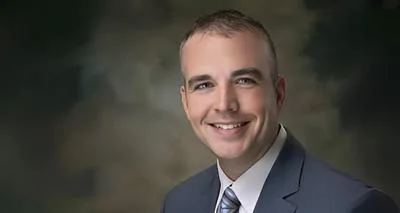Connie Farrow, executive director, Patients Come First-Missouri, left, and Federal Trade Commission Chair Linda Kahn | PatientsComeFirst.com / FTC.gov
Connie Farrow, executive director, Patients Come First-Missouri, left, and Federal Trade Commission Chair Linda Kahn | PatientsComeFirst.com / FTC.gov
The head of a Missouri health care reform group said consumers should be concerned by a new government report showing the pharmacy benefit manager (PBM) industry is leading to higher prescription drug costs.
“Consumers should be alarmed by a recently released Federal Trade Commission interim report accusing the nation’s largest pharmacy benefit managers (PBMs), which act as influential middlemen in our healthcare system, of wielding enormous power over patients’ ability to access and afford their medicines,” wrote Connie Farrow, executive director of Patients Come First-Missouri, in a News-Leader op-ed.
“The report, released July 9, found that the six largest PBMs control 95% of prescriptions filled in the United States every year,” wrote Farrow. “The report details how PBMs drive up the costs for many lifesaving drugs, including cancer drugs, and squeeze independent pharmacies out of the market, making it more difficult for some residents in rural and underserved communities to get medicines locally.”
The FTC report, required by a special order issued by the FTC in 2022, said that increased vertical integration and concentration have contributed to six PBMs —Caremark Rx, LLC; Express Scripts, Inc.; OptumRx, Inc.; Humana Pharmacy Solutions, Inc.; Prime Therapeutics LLC; and MedImpact Healthcare Systems, Inc. — managing almost 95% of the nation’s prescriptions.
This industry concentration, said the FTC, has led to an increase in the cost of prescription drugs.
"The FTC’s interim report lays out how dominant pharmacy benefit managers can hike the cost of drugs—including overcharging patients for cancer drugs," FTC Chair Lina M. Khan said in a press release. "The report also details how PBMs can squeeze independent pharmacies that many Americans—especially those in rural communities—depend on for essential care."
A PBM is a third-party administrator of prescription drug programs for commercial health plans, self-insured employer plans, Medicare Part D plans, the Federal Employees Health Benefits Program, and state government employee plans.
PBMs perform a variety of tasks such as processing and paying prescription drug claims, negotiating discounts and rebates with drug manufacturers, and managing pharmacy networks.
The FTC report follows a February letter sent by 47 state attorneys general to Congressional leadership that said Congress should pass federal legislation to "reform PBM practices to curtail their ability to unreasonably raise the price of drugs and to require greater transparency.”
"Such transparency should, among other things, require PBMs to produce pricing data to health plans and federal and state regulators in a standardized format,” said the letter. “This will enable health plans to negotiate better deals with PBMs and will allow regulators to better hold PBMs accountable."
The attorneys general cited three pending bills in Congress, The DRUG Act (S1542/HR6283), Protecting Patients Against PBM Abuses Act (HR2880) and The Lower Costs, More Transparency Act (HR5378), as “an important first step toward reforming” PBMs.
Farrow previously worked as a reporter for The Associated Press in Kansas City from 1993 to 2005. She also worked as the communications director for Missouri Coalition for Lifesaving Cures, and was a Reynolds Journalism Institute Fellow from 2012-2013.
Missouri was one of three states, including California and New Jersey, in which Patients Come First groups launched on March 18.






 Alerts Sign-up
Alerts Sign-up